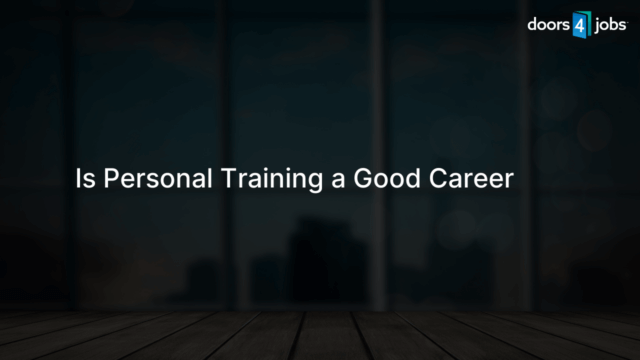Yes, being a Police Officer can be a good career for individuals who are disciplined, service-minded, and eager to maintain law and order. This profession offers job stability, opportunities for promotion, personal growth, and a sense of purpose, despite the potential risks and challenges involved. However, it may not be suitable for everyone, as it requires physical fitness, emotional resilience, and effective communication skills.
Job Stability and Benefits
As a Police Officer, you can expect job stability due to the constant demand for law enforcement professionals. Along with steady employment, officers receive competitive salaries, health insurance, retirement plans, and potential overtime pay, making it a financially rewarding career choice.
Opportunities for Growth and Promotion
Police departments offer multiple opportunities for growth and promotion. With experience and continued education, officers can advance through the ranks, such as becoming a detective, sergeant, or higher administrative roles. This allows for an exciting and diverse career path within law enforcement.
Personal Development and Skill Building
As a Police Officer, you will develop valuable skills, such as conflict resolution, decision-making, and critical thinking. In addition, you will gain expertise in various areas, including firearms training, self-defense, and crime scene analysis.
Physical Fitness
Staying physically fit plays a crucial role in performing your duties effectively. Along with meeting initial fitness qualifications, you must maintain fitness throughout your career to handle the demands of the job.
Emotional Resilience
Police Officers must possess strong emotional resilience to handle high-stress situations and assist individuals experiencing trauma. This quality helps officers cope with challenging events while maintaining a professional demeanor.
Serving the Community
One of the most rewarding aspects of being a Police Officer is the opportunity to serve your community and make a real difference. You will protect citizens, enforce laws, apprehend criminals, and contribute to public safety, all of which can result in a strong sense of purpose and fulfillment.
Is It the Right Career For You?
Ultimately, considering a career as a Police Officer involves assessing your personal values, goals, and willingness to handle the inherent risks and challenges. While it offers significant rewards and a positive impact on society, it requires a commitment to developing and maintaining the physical, emotional, and interpersonal skills necessary for the job.
Education and Training Requirements
To become a Police Officer, you typically need a high school diploma or GED, though many departments prefer or even require a college degree in fields such as criminal justice, public safety, or a related discipline. Candidates must then attend a police academy, which provides training in topics like law, self-defense, firearms, and first aid. Depending on the department, additional training and certifications may be required.
Work-Life Balance
A career as a Police Officer may impact your work-life balance, as you may be required to work irregular hours, weekends, and holidays. Officers often work long shifts and are sometimes on call. Balancing the demands of the job with personal and family life can be challenging, making it essential to prioritize self-care and time management.
Community Relations
Building and maintaining positive relationships within the community is crucial for effective policing. Police Officers are responsible for engaging with citizens in respectful and honest ways to foster trust, cooperation, and public safety. Good communication and active listening skills make a significant difference in the perception of law enforcement and improve overall community relations.
Occupational Hazards
Police Officers are exposed to various occupational hazards, such as potential physical injuries and harm during confrontations or dangerous situations. In addition, they may encounter emotionally or mentally challenging events, such as dealing with cases involving children, victims of violence, or fatalities. Knowing and understanding the risks involved is important when considering this career path.
Continuing Education
To stay current with ever-evolving laws, regulations, and policing methods, Police Officers should participate in ongoing professional development and continuing education opportunities. This may include attending workshops, conferences, or pursuing advanced degrees that provide valuable insights and promote career growth.
Frequently Asked Questions
Here are some common questions people have about pursuing a career as a Police Officer. These FAQs provide additional insight into various aspects of the profession, helping readers better understand whether it is the right career choice for them.
What are the initial qualifications to become a Police Officer?
You generally need a high school diploma or GED, and possibly a college degree in a relevant field, depending on the department’s requirements. Candidates must also complete a police academy program and meet specific physical and mental fitness standards.
What is the average salary for a Police Officer?
Salaries for Police Officers vary depending on factors like location, experience, and rank. The median annual wage for a Police Officer in the United States is around $65,000 but could be higher or lower depending on these factors.
How can I advance my career as a Police Officer?
As a Police Officer, you can advance your career by gaining experience, participating in ongoing professional development, pursuing higher education, and seeking promotion opportunities within your department. This may involve moving into specialized units, such as homicide investigations or tactical response teams, or taking on leadership roles like sergeants or lieutenants.
What are some of the essential skills needed to be a successful Police Officer?
Effective Police Officers possess strong communication and interpersonal skills, critical thinking and decision-making abilities, emotional resilience, and physical fitness. Additionally, they should be adaptable, empathetic, and able to work well under pressure.
What kind of work schedule can I expect as a Police Officer?
Police Officers typically work irregular hours, including nights, weekends, and holidays, with shifts often lasting longer than eight hours. They may also be on call to respond to emergencies. Balancing the demands of this work schedule with personal and family life can be challenging and requires adaptability and good time management skills.











